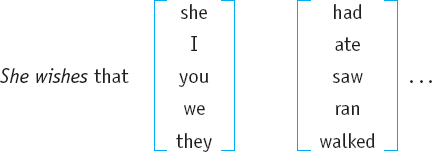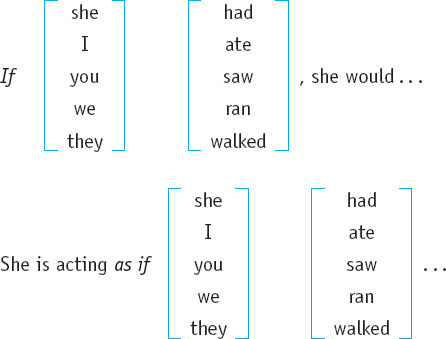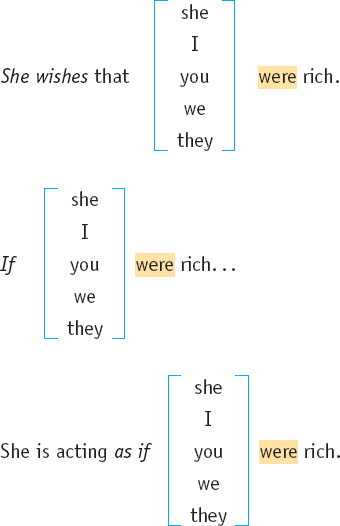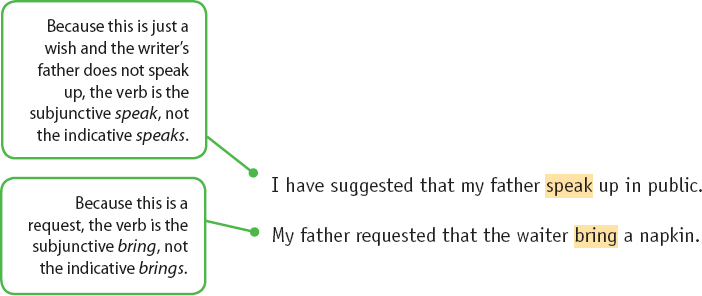USE VERBS IN SPECIAL MOODS IN SPECIAL CASES
Statements, exclamations, and questions are all in the indicative mood:
Statement
My parents don’t expect strangers to be on their side.
Exclamation
They won’t even ask for help!
Question
Would it cross my father’s mind to ask a waiter for a napkin?
Usually, statements do the work, and exclamations and questions provide special effects. In academic and business writing, make it a habit to phrase your thoughts as statements.
In commands, or the imperative mood, the subject is always you, which is implied, rather than actually appearing in the sentence. Here the writer is addressing a command at her parents:
Speak up for yourselves!
The subjunctive mood can be tricky. It is used for things that are not, or aren’t necessarily, true, including wishes, most as if comparisons, and some if and that statements. In these kinds of sentences, use the past tense to describe the untrue condition or wish:
She wishes that she had a million dollars.
She is acting as if she had a million dollars.

If she had a million dollars, she would buy more books.
Do not use the subjunctive mood in as if comparisons and if statements when they describe something you believe is true or is likely to come true:
Her financial trouble is serious. She is acting as if she has barely enough money to live on.
If she has enough money at the end of the week, she will buy books.
The switch to the past tense of verbs in subjunctive clauses is simple with every verb except be, because all verbs except be, regular and irregular, have only one past-tense form:


The past tense of be, however, has two forms: was and were. In the subjunctive mood, only were is used, even for singular subjects:

A present-tense version of the subjunctive mood, in which the verb appears in its base form, also exists. Use this for suggestions, requests, and orders:
